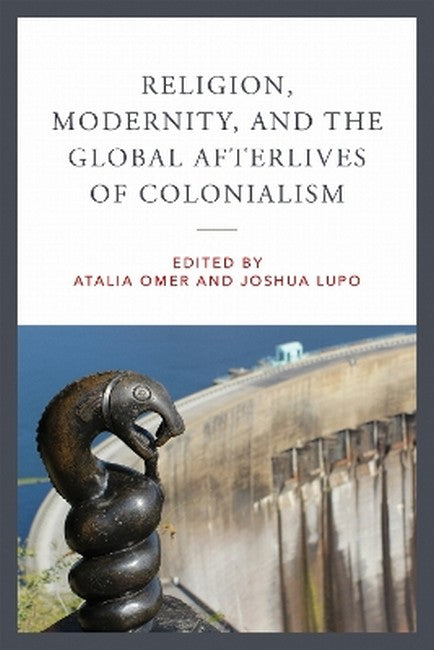Atalia Omer is professor of religion, conflict, and peace studies at the Kroc Institute for International Peace Studies and the Keough School of Global Affairs at the University of Notre Dame. She is the author of Decolonizing Religion and Peacebuilding and co-editor of Religion, Populism, and Modernity. Joshua Lupo is the assistant director of the Contending Modernities research initiative at the Kroc Institute for International Peace Studies at the University of Notre Dame. He is the co-editor of Religion, Populism, and Modernity.
Request Academic Copy
Please copy the ISBN for submitting review copy form
Description
"Introduction to Religion, Modernity, and Colonialism" by Atalia Omer and Joshua Lupo Part 1. Religion, Politics, and Colonial Afterlives, or the Old is not Dying 1. "Seeing the Old in the New: The Coloniality of the Liberal-Populist Marriage" by Santiago Slabodsky 2. "Deradicalization as a Fetish: The Threat of Da'wa and the Regulation of the Real" by Nadia Fadil 3. "Afrofuturism, Islamofuturism, and Post-Western Modernity" by S. Sayyid 4. "The Neoliberal Rationality of Secularism" by Luca Mavelli and Edmund Frettingham, Part 2. Challenging Colonial Paradigms: Nationalisms and Humanitarianism at the Edges of Modernity 5. "Modern Epistemological Webs: The Complex Legacies of Missionizing and Humanitarianism for Decolonizing Religion in Africa" by Cecelia Lynch 6. "Linking Identity and Solidarity: A Reflection from the Periphery" by Slavica Jakelic 7. "The Fires This Time" by Gil Anidjar
"Religion, Modernity, and the Global Afterlives of Colonialism contains a fine set of essays that together raise critical questions about what scholars are doing when we attempt to 'decolonize' a field of study and, relatedly, our notions of political agency and community. These scholars collectively argue that decolonizing is necessary, difficult, and brave work." -Shannon F. Dunn, professor and chair of the Religious Studies Department, Gonzaga University

